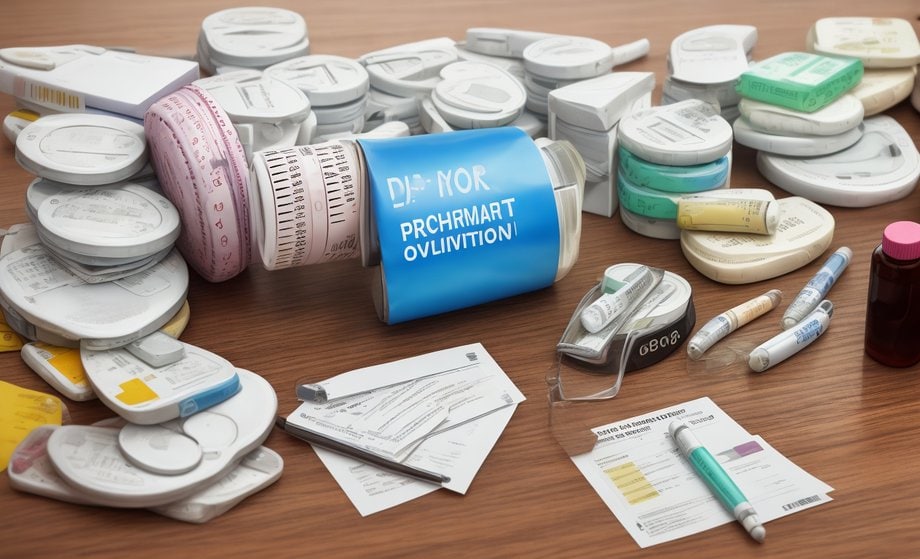4 Best Prescription Drug Coverage Options for Chronic Conditions

Looking for the best prescription drug coverage options for your chronic condition? Look no further! In this article, we’ll walk you through four top choices.
Whether you have employer-sponsored health insurance, Medicare Part D, Medicaid, or private health insurance, we’ve got you covered. Find out which option suits your needs best and gain peace of mind knowing that you’ll have access to the medications you need to manage your condition effectively.
Let’s dive in!
Key Takeaways
- Employer-sponsored health insurance plans provide a portion of the premium coverage and offer a wider network of doctors and specialists.
- Medicare Part D offers coverage for a variety of prescription drugs and includes cost-saving opportunities, reducing out-of-pocket costs.
- Medicaid provides comprehensive coverage for prescription drugs to low-income individuals and families, with affordable options and limitations to consider.
- Private health insurance plans offer coverage for a wide range of prescription drugs, flexibility in choosing healthcare providers, and cost-saving options like generic drug coverage and mail-order pharmacy services.
Employer-Sponsored Health Insurance Plans
When considering your options for prescription drug coverage for chronic conditions, it’s important to explore the benefits of employer-sponsored health insurance plans. These plans offer a range of advantages that can significantly impact your healthcare costs and overall well-being.
One of the main benefits is that your employer typically covers a portion of the premium, reducing your out-of-pocket expenses. Additionally, these plans often have a wider network of doctors and specialists, ensuring that you have access to the best healthcare providers for your condition.
When choosing the right health insurance plan, it’s essential to carefully review the coverage options for prescription drugs, including copayments and deductibles. By taking the time to understand the employer-sponsored health insurance benefits and selecting the plan that best suits your needs, you can ensure that you receive the necessary medications and treatments for your chronic condition without incurring excessive costs.
Medicare Part D
If you’re eligible for Medicare, one of the best prescription drug coverage options for chronic conditions is Medicare Part D. This program is specifically designed to help individuals with the cost of prescription medications.
Here are three key features of Medicare Part D:
- Wide range of covered medications: Medicare Part D offers coverage for a variety of prescription drugs, ensuring that you have access to the medications you need to manage your chronic condition.
- Network of participating pharmacies: With Medicare Part D, you can choose from a network of pharmacies where you can fill your prescriptions. This makes it convenient for you to obtain your medications.
- Cost-saving opportunities: Medicare Part D includes different coverage stages, such as the initial coverage stage and the coverage gap, which can help reduce your out-of-pocket costs for prescription drugs.
Medicaid
To maximize your prescription drug coverage for chronic conditions, consider Medicaid.
Medicaid is a government program that provides health insurance to low-income individuals and families. It’s designed to assist those who may not have the means to afford private insurance or Medicare.
One of the key benefits of Medicaid is its comprehensive coverage for prescription drugs. If you meet the Medicaid eligibility criteria, you can gain access to a wide range of medications to manage your chronic conditions.
However, it’s important to note that Medicaid coverage may have limitations. Some medications may require prior authorization or have quantity limits. Additionally, not all medications may be covered under Medicaid, so it’s crucial to check the formulary to ensure that your specific prescriptions are included.
Nevertheless, Medicaid can be an excellent option for individuals seeking affordable and comprehensive prescription drug coverage for chronic conditions.
Private Health Insurance Plans
Consider exploring private health insurance plans to enhance your prescription drug coverage for chronic conditions. Private health insurance offers a range of benefits that can help you manage your healthcare costs effectively.
Here are some key advantages of private health insurance:
- Comprehensive Coverage: Private health insurance plans often provide coverage for a wide range of prescription drugs, ensuring that you have access to the medications you need to manage your chronic condition.
- Flexibility: Private health insurance plans offer more flexibility in terms of choosing healthcare providers and accessing specialized treatments. This can be particularly beneficial if you have specific healthcare needs related to your chronic condition.
- Cost Management: While private health insurance costs can vary, many plans offer cost-saving options such as generic drug coverage and mail-order pharmacy services. These can help you save money on prescription medications while still receiving high-quality care.
Exploring private health insurance options can provide you with greater peace of mind and improved prescription drug coverage for your chronic condition.
Frequently Asked Questions
Can I Use Prescription Drug Coverage From My Employer-Sponsored Health Insurance Plan for Chronic Conditions That Are Not Covered Under the Plan?
You can’t use your employer-sponsored coverage for chronic conditions that aren’t covered. There may be limitations on medications. Consider exploring other options to ensure you have the best prescription drug coverage for your needs.
Are There Any Limitations or Restrictions on the Types of Medications Covered Under Medicare Part D for Chronic Conditions?
There might be limitations on the types of medications covered under Medicare Part D for chronic conditions. Different health insurance plans offer coverage options for chronic conditions, so it’s important to explore all your options.
Can Medicaid Coverage for Prescription Drugs Be Used for Chronic Conditions That Are Not Considered Medically Necessary?
Yes, Medicaid coverage for prescription drugs can be used for chronic conditions that are not considered medically necessary. It provides assistance for a wide range of conditions to ensure you have access to the medications you need.
Do Private Health Insurance Plans Typically Cover the Full Cost of Prescription Drugs for Chronic Conditions, or Are There Specific Co-Pays or Deductibles?
Private health insurance plans typically require co-pays or deductibles for prescription drug coverage. These plans may not cover the full cost of drugs for chronic conditions, so it’s important to review your plan’s specifics.
Are There Any Specific Criteria or Requirements That Need to Be Met in Order to Qualify for Prescription Drug Coverage for Chronic Conditions Under Different Health Insurance Plans?
To qualify for prescription drug coverage for chronic conditions under different health insurance plans, you may need to meet specific criteria and requirements. These may vary depending on the plan, so it’s important to review the details of each option.









